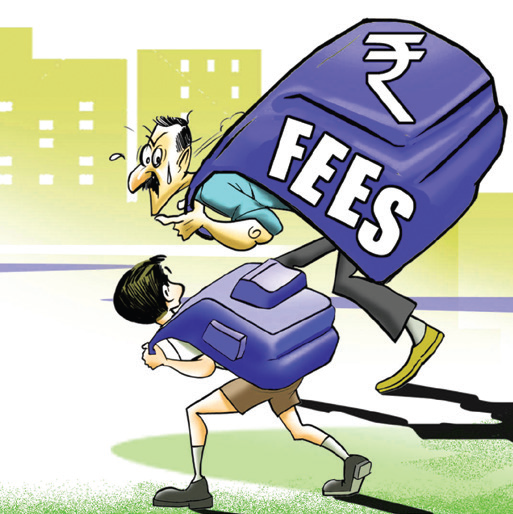
School fee surge sparks outrage among Bengaluru parents
Significant cost of admission forms strains middleincome families amid concerns over affordability & access to quality education
NT Bengaluru
As admissions begin for the academic year 2025- 26, there is also a significant increase in school admission costs across Bengaluru, leaving many parents grappling with the financial implications. Schools are implementing substantial fee hikes, which are attributed to various factors, including rising operational expenses, infrastructure development, and the introduction of new educational programs. While some schools defend the fee increases by emphasising on enhanced facilities and improved faculty, many parents are expressing concerns about the affordability of quality education.
This issue is particularly pressing for middle-income families, who often find it challenging to balance the desire for highquality education with their financial realities. One parent, Priya Biswas, whose son studies at a private school in Whitefield, voiced her concerns, stating, “It’s becoming increasingly difficult to afford my children’s education. While I want the best for them, these fee hikes are making it nearly impossible for families like ours.” Although Priya’s family is DIOK (Dual Income One Kid), she stated, “The cost of living in Bengaluru is expensive as it is, and if the admission form alone costs this much, what can I do?” She also added that this is a concern most parents share.
Another parent, Rajesh Kumar, who has twin girls joining kindergarten this year, expressed frustration as well. “It’s not just about paying fees anymore; it’s about planning for the future. With these hikes, I worry about affording tuition and additional expenses like books and uniforms, and I am thinking about these expenses twice!” he said.
On an average, the annual fees for a private school offering a CBSE or ISC/ICSE syllabus in Bengaluru start at around Rs 1,50,000. A major factor contributing to the rising school fees is the addition of facilities like boxing rings, swimming pools or sports courts, which can nearly double the fees. Even if a school offers just one of these amenities, the fee hike is often drastic, adding another layer of financial pressure on families. Additionally, schools are increasingly charging multiple other fees, such as those for books, uniforms, travel, and other amenities, which have collectively driven up the overall cost of education.
These additional charges have made it even harder for families to manage education costs, especially in a city like Bengaluru, where living expenses are already high. Stakeholders, including government authorities and educational institutions, must prioritise transparency in fee structures to ensure equitable access to quality education for all children.
Karnataka school fee structure: In Karnataka, the responsibility for school fees is a collaborative effort involving the state government, private school management, and parents. Government schools typically have minimal or no fees, particularly for primary education, as the state government primarily funds these institutions. Aided schools receive partial funding from the government, which also regulates their fees, allowing for some level of control over fee structures.
In contrast, unaided and private schools are entirely self-financed and enjoy greater autonomy in determining their fees, although the government still maintains a vigil to ensure transparency and prevent exorbitant charges. The Karnataka government has implemented regulations and guidelines to monitor fee hikes in private schools, providing parents with avenues to appeal against unjustified increases and seek redressal through relevant government authorities.
 English daily published in Bengaluru & Doha
English daily published in Bengaluru & Doha






